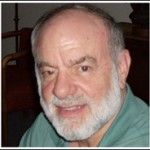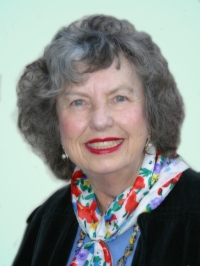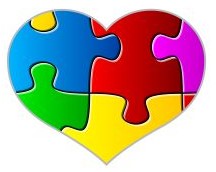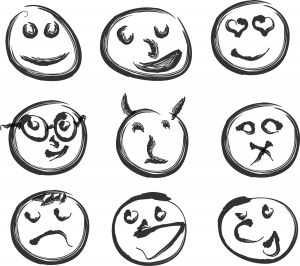API: Tell us about how you began working with children and families.
PH: Since the early 1960s, I’ve been helping parents who have come to me with their frustrations about rearing their young children and adolescents. Although my work over the decades has primarily been with parents of infants, toddlers and preschool-age children, I started out teaching English to high school students in an inner-city school.
Most of my classes there were regular students. However, one of my English classes was made up of kids who had severe behavior problems. They were delinquents. No other teacher wanted to teach these adolescents. I wanted to do so.
In my work with them, I found that “how” they were educated made all the difference. Rather than teaching the standard English curriculum, I first found out what topics held their interest as a group. In our first class meetings, it seemed my questions to them brought out a pronounced interest in gangs and cars. I found two related paperback books. I ordered a copy for each student. During the semester, we read and discussed the content of each book in class. Skits provoked by the dilemmas in each book were enacted by groups of students in the class.
My graduate study of how young children learn best revealed that they, too, are motivated when adults first take the time to find out the individual child’s intrinsic interests and then help that child develop and elaborate their experience with that interest.
API: What does your work center around now? What services do you offer?
PH: I try to pass on to others what the research has been teaching about children and how those around them can best nourish their growth and development. For example, in my articles and work with parents I describe how research shows that behavior is usually caused by the status of underlying need states; how often it is better to educate than to teach; and how parents should learn to look through the emotional eyes of their children, not just their own.
Although parents continue to ask me for child-rearing advice, over the past twenty years parents with young children from across the country have asked for my help in divorce, child custody and visitation disputes because of several publications on the topic. Therefore, I have been an expert witness in family courts on issues that address infant and toddler attachment, brain growth and related research. I write court reports that review the empirical and clinical research on the short- and long-term effects of the above dynamics on young children. And I also help mothers become better advocates for themselves and their children during the divorce process.
API: What have parents found most useful about your work and services?
PH: The best people to answer that question are the parents who have sought my help. A few letters from them can be found in “Testimonials from Parents” on my website. In addition, I have two or three folders full of notes and letters in my file drawer that have been collected since I have been in California.
API: What are your views of Attachment Parenting and the work that API is doing?
PH: Although I am pleased that API, like other similar organizations, has an educational and support focus, I wish it would take on more of a political agenda as well. Organizations like API, if they are to have an enduring impact on our society and improve the future well-being of our young children, must join with other similar organizations like the National Association for the Education of Young Children, the American Academy of Pediatrics, La Leche League, and other similar organizations. These organizations then, in unity, can work together to improve the way our nation treats its young children.
API: Where can people get more information about your services?
PH: People can find out more about me by reading my resume and other information on my website at www.peterhaiman.com.




 It is an understatement to say that step-families have many challenges to overcome. Step-families often are formed out of loss – demise of a partner, a broken marriage. If such events are recent, bringing about a change by getting married again might create a bigger challenge: Children can experience difficulty in adjusting to their new family, although it is no less a testing time for the children’s parents and their new partner.
It is an understatement to say that step-families have many challenges to overcome. Step-families often are formed out of loss – demise of a partner, a broken marriage. If such events are recent, bringing about a change by getting married again might create a bigger challenge: Children can experience difficulty in adjusting to their new family, although it is no less a testing time for the children’s parents and their new partner. Custody cases are rarely pleasant, but in about 10 percent of these cases, it truly becomes a battle between the estranged parents and the long-term effects on their children’s mental wellbeing can be devastating.
Custody cases are rarely pleasant, but in about 10 percent of these cases, it truly becomes a battle between the estranged parents and the long-term effects on their children’s mental wellbeing can be devastating. Canadian parents who have been the target of parental alienation that is negatively affecting their attachment to their children now have the courts on their side. According to an article on TheGlobeAndMail.com, “Courts Can Rescue Kids From an Alienating Parent,” judges in Canada are now willing to intervene in such custody cases and remove children from homes of the alienating parent even if it’s against the child’s wishes.
Canadian parents who have been the target of parental alienation that is negatively affecting their attachment to their children now have the courts on their side. According to an article on TheGlobeAndMail.com, “Courts Can Rescue Kids From an Alienating Parent,” judges in Canada are now willing to intervene in such custody cases and remove children from homes of the alienating parent even if it’s against the child’s wishes. I frequently receive e-mail from parents who practice Attachment Parenting (AP) across the United States and in other countries asking for help and support in custody cases when they are contemplating shared joint custody of their infants, toddlers, and preschool children.
I frequently receive e-mail from parents who practice Attachment Parenting (AP) across the United States and in other countries asking for help and support in custody cases when they are contemplating shared joint custody of their infants, toddlers, and preschool children.